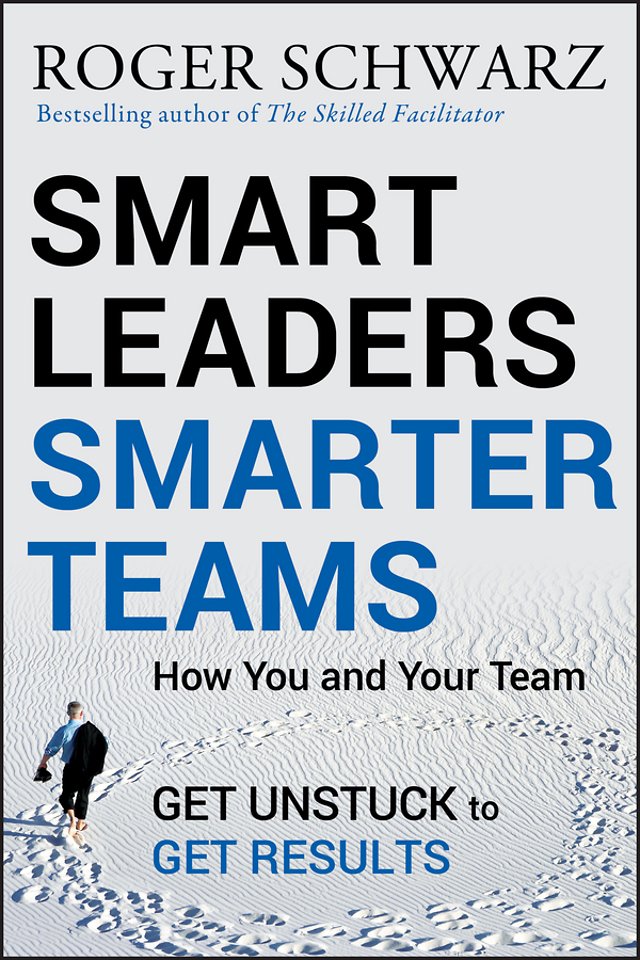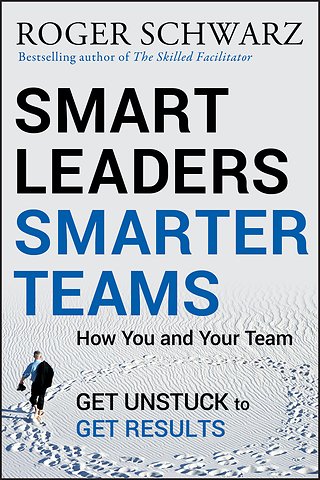Smart Leaders, Smarter Teams
How You and Your Team Get Unstuck to Get Results
Gebonden Engels 2013 9780787988739Samenvatting
A proven approach for helping leaders and teams work together to achieve better decisions, greater commitment, and stronger results
More than ever, effective leadership requires us to work as a team, but many leaders struggle to get the results they need. When stakes are high, you can′t get great results by just changing what you do. You also need to change how you think. Organizational psychologist and leadership consultant Roger Schwarz applies his 30+ years of experience working with leadership teams to reveal how leaders can drastically improve results by changing their individual and team mindset.
Provides practical guidance to help teams increase decision quality, decrease implementation time, foster innovation, get commitment, reduce costs and increase trust
Outlines 5 core values leadership teams can adopt to exponentially improve results
Author of The Skilled Facilitator and The Skilled Facilitator Fieldbook
Get the results you and your team need. Start by applying the practical wisdom of Smart Leaders, Smarter Teams.
Specificaties
Lezersrecensies
Inhoudsopgave
<p>Who this book is for, what it is about, and why I wrote it.</p>
<p>1 How Well Does Your Team Really Work? 1</p>
<p>Why does a group of smart leaders so often create a less–than–smart team? Th is chapter describes how the mindset leaders use can get them and their team stuck. It explains why adopting a mutual learning set of values and assumptions gets you and your team unstuck so that you get more done and achieve your goals.</p>
<p>2 How You and Your Team Get Stuck: The Unilateral Control Approach 25</p>
<p>When you and your team try to achieve your goals by unilaterally controlling the situation, you get the very results you ve been trying to avoid. This chapter enables you to compare your own mindset and behaviors to those of a unilaterally controlling leader, so you can understand the mindset from which you are operating.</p>
<p>3 Getting Unstuck to Get Results: The Mutual Learning Approach 49</p>
<p>When you shift to a mutual learning mindset, you and your team operate from a more productive set of values and assumptions. These include being transparent, curious, accountable, and compassionate, and creating informed choice. This chapter demonstrates how that mindset generates common understanding that transforms decision making to produce better team performance, stronger team working relationships, and work that is satisfying and motivating.</p>
<p>4 Getting the Puzzle Pieces on the Table: Mutual Learning Behaviors 1 4 87</p>
<p>How you think is how you lead. This chapter provides detailed guidance on how to put the mutual learning mindset into action through four mutual learning behaviors: state views and ask genuine questions, share all relevant information, use specific examples and agree on what important words mean, and explain your reasoning and intent. See how these behaviors lead you and your team to higher quality decisions, shorter implementation time, and greater commitment and trust.</p>
<p>5 Putting the Puzzle Together: Mutual Learning Behaviors 5 8 109</p>
<p>Continuing from Chapter Four, this chapter provides detailed guidance on how to put the mutual learning mindset into action through four more mutual learning behaviors: focus on interests not positions, test assumptions and inferences, jointly design next steps, and discuss undiscussable issues.</p>
<p>6 Designing for Mutual Learning 143</p>
<p>How you design or redesign your team shapes whether your team gets the results you want or the results you re trying to avoid. See how to enhance your team structures, processes, and context to get more eff ective decision making, less unproductive conflict, and greater commitment.</p>
<p>7 Dealing With Common Team Challenges 177</p>
<p>Most teams face challenges that are easily addressed by using a mutual learning approach. This chapter describes how to apply the mutual learning mindset and behaviors to deal with these challenges, including keeping team meetings on track, speaking with one voice as a team, preventing end runs, and giving and receiving feedback.</p>
<p>8 Becoming a Smarter Leader 199</p>
<p>Have you decided to become a smarter leader through mutual learning? This chapter helps you take stock of what you want to achieve, develop an action plan for what you want to change and why, and prepare to talk with your team about your changes. Together these steps will help you engage your team to support your leadership change.</p>
<p>9 Becoming a Smarter Team 215</p>
<p>Your team has greater power to get better results when you and the team decide to change together. The stakes are higher, but so are the rewards. This chapter provides specific steps to help you and your team take stock of what the team wants to achieve, develop a team action plan for change, and plan for team conversations to begin the change. Together, these steps will help you create a team whose results exceed the sum of its parts.</p>
<p>Notes 233</p>
<p>Acknowledgments 241</p>
<p>About the Author 245</p>
<p>Index 247</p>
Anderen die dit kochten, kochten ook
Rubrieken
- advisering
- algemeen management
- coaching en trainen
- communicatie en media
- economie
- financieel management
- inkoop en logistiek
- internet en social media
- it-management / ict
- juridisch
- leiderschap
- marketing
- mens en maatschappij
- non-profit
- ondernemen
- organisatiekunde
- personal finance
- personeelsmanagement
- persoonlijke effectiviteit
- projectmanagement
- psychologie
- reclame en verkoop
- strategisch management
- verandermanagement
- werk en loopbaan







